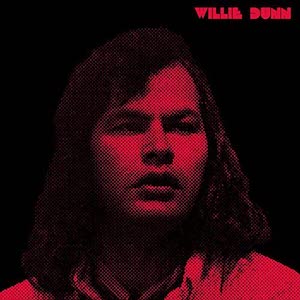
Willie Dunn: Creation Never Sleeps, Creation Never Dies
Light in the Attic – 19 March 2021
I’m ashamed to admit that Willie Dunn (1941-2013) is a new name to me, but on the flip side, I’m equally delighted to discover a collection of his songs on this important and powerful anthology.
Creation Never Sleeps, Creation Never Dies examines Dunn’s over 40-year career. Born in Canada, with a mix of Mi’gmaq and Scottish/Irish blood, Dunn’s work, emerging as it did in the late 1960s, and following his time as a Canadian soldier stationed with the UN in the Congo, naturally exudes a social and political bias. The plight of indigenous people flavoured his work. He explores Canada’s dark colonial past and the country’s harsh treatment of its indigenous people with a measured, angry and sensitive ear.
For some reason, Dunn never quite achieved mainstream success. The initial sound recalls Jackson C. Frank, maybe even a little Dylan, but there is so much to discover in Dunn’s work. Beyond a career as a singer-songwriter, Dunn was also a film-director and politician, with an authoritative and honest voice that championed the dispossessed and downtrodden.
Dunn emerged on the Canadian coffeehouse scene of the 1960s, opening his own premises – the Totem Pole Restaurant & Coffee House on Rue Stanley in downtown Montreal. Here he was able to perform and develop his own repertoire to an emphatic and responsive audience. Protest songs and songs of resistance were popular, and there are plenty on this essential collection, but Dunn was also a poet and philosopher and his songs explore concerns not limited to time nor place. There are truly universal messages in Dunn’s songs.
The 22 tracks on offer here, cover Dunn’s career from the 1960s up to the 2000s. With such a significant timespan to explore, especially considering the complicated social and political culture of Canada and her indigenous people, the anthology could have come across as a worthy, but essentially quite dry, collection. It’s a testament to Dunn’s family and Dunn’s own song writing that this is never the case. Throughout, the energy and vitality prevail. This is an exciting, stimulating, and commanding collection.
The 1968 song ‘The Ballad of Crowfoot’ opens the anthology. It’s a beautifully simple, effective, and heart-breaking lament. It tells the story of the 19th century Siksika chief, who helped negotiate Treaty 7 of the Blackfoot Confederacy. ‘Crowfoot, Crowfoot, why the tears? You’ve been a brave man for many years. Why the sadness? Why the sorrow? Maybe they’ll be a better tomorrow’ sings Dunn over a simple, but forceful guitar accompaniment. It’s a potent and angry chorus for a song with a persuasive, angry message.
This message of fury and resistance features throughout Creation Never Sleeps, Creation Never Dies but it never feels preaching. It’s a testament to Dunn’s writing that the entire album feels invigorating, incensed, raw, and passionate in equal measure.
‘I Pity The Country’ lays Dunn’s agenda out clearly. It’s an eternal anger though: ‘I pity the country; I pity the state. And the mind of a man, who thrives on hate.’ ‘Peruvian Dream’ is a haunting piece of drone poetry. It is a tale of blood, of repression and colonialism in Sierra. ‘O Canada!’ with its line ‘We’ve walked upon your sands, with saddened hearts. We’ve seen you robbed and stripped of everything you prized’, is a lament to the land and its people. ‘Broker’ tells the warning of man attempting to command nature and the robbing of the land of its people: ‘You’ve taken my land, and my living too. And left me standing, with nothing to do.’ Similar messages flitter the anthology, but they are never heavy-handed.
Listen to the ‘Ratting Along the Freight Train (To the Spirit Land)‘, with its juxtaposition of earth and steel, of flesh and spirit. It’s a song of work, of looking for a job, but there is a sense of energy or even excitement in its thrusting rhythm and beat. Or ‘Pontiac’, opening with the sounds of nature, a celebration of the lands on the north shore of the Ottawa River: ‘Down along the ridges of Mooseback Mountain, down along the lakes of a thousand dreams’. It’s a beautiful heartfelt ode to the land and its people.
‘The Pacific’ sees Dunn’s spoken words over some simple guitar and piano. It highlights Dunn’s talents with poetry whilst ‘Sonnet 33 and 55 / Friendship Dance’ takes the bold move of incorporating Shakespeare’s sonnets over a pounding, hypnotic drum, and vocals by the Akwesasne singers.
The anthology’s title comes from a line in ‘The Carver’, a celebration of the artist Chief Mungo Martin, or Nakapenkem. It’s a hopeful celebration of the artist’s talent and life. The album finishes with the ‘Bear and Fish’ taken from Dunn’s 2004 album Son of the Sun. You can hear Dunn’s voice faltering somewhat, but the power, sincerity and sheer vitality is still there.
Creation Never Sleeps, Creation Never Dies is accompanied by considerable, and extensive, liner notes and reproduction of letters, all presented as a 24-page newspaper examines his career and achievements in detail. It’s a real labour of love by Dunn’s family, and helps to reinforce the importance of Dunn’s work.
This is a stunning, heartfelt, and important anthology, especially so as a survey of political song writing and thought during Canada’s history of the 60’s to the early noughties. It is also, crucially, important as a record of Dunn’s considered, accomplished and thoroughly striking song writing. His deep, rich, strong voice and his message remain eternal. One for every record collection. Seek out Willie Dunn’s work, you’ll thank me for it.

